KoyaQuest
Chūmon
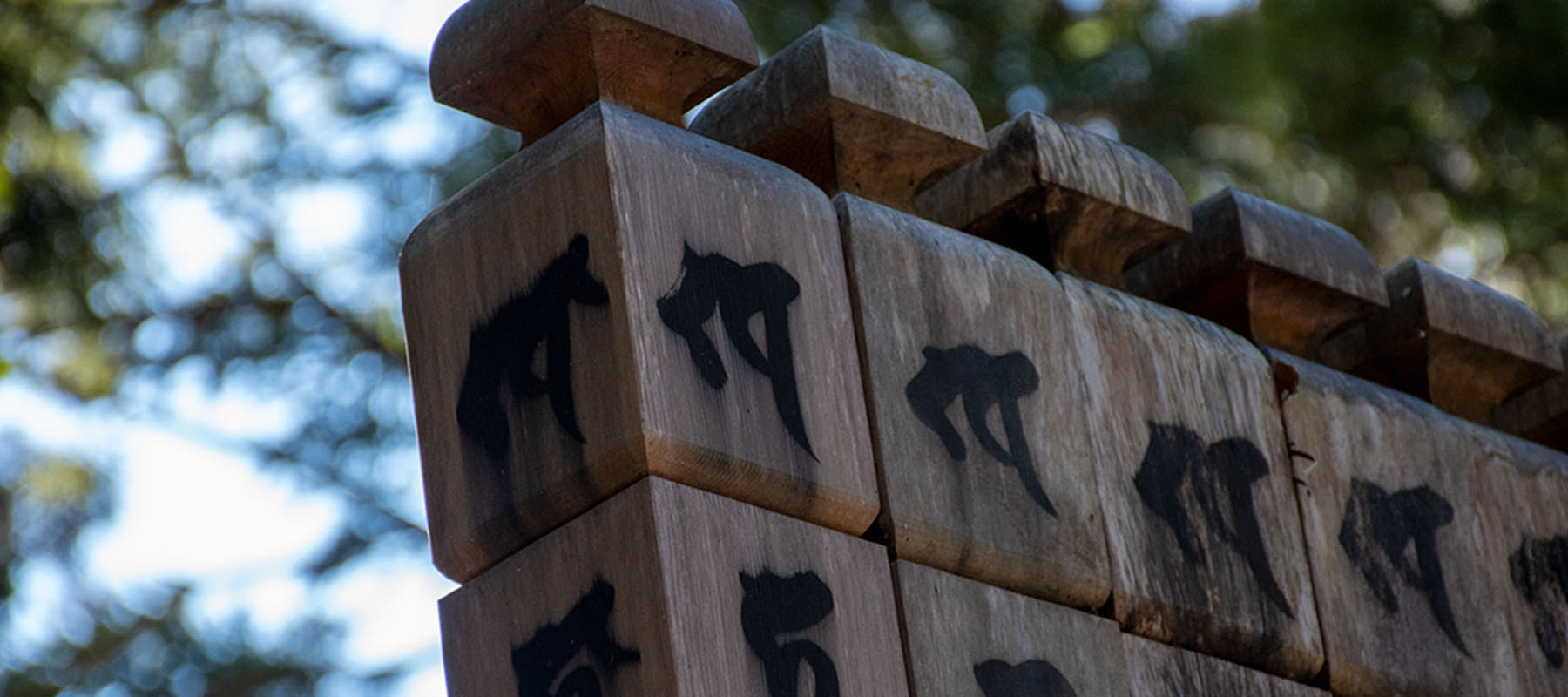
Chūmon

Chūmon
Today, most visitors to the Danjō-garan enter through a path on the eastern side known as the Jabaramichi, or Snake-Belly Lane. However, the more traditional approach to this sacred area is through the Central Gate, or Chūmon, on the southern side.
For most of the past two centuries, this gate was missing, having been destroyed by fire in 1843.
The gate was finally rebuilt in 2015 as part of the celebrations to commemorate the 1,200th anniversary of the founding of Kōyasan. The stone footings of its predecessor can still be seen just in front of the present structure.
The current Chūmon rests on similar stone footings. In keeping with the original method of construction, no nails were used, and the pillars rest snugly on their footings with the ends of each perfectly contoured to the surface of the supporting stones.
At 16 meters in height and 25 meters in width, the Chūmon is less imposing than the Daimon several hundred meters to the west. But it does feature four statues as opposed to the two housed inside the Great Gate.
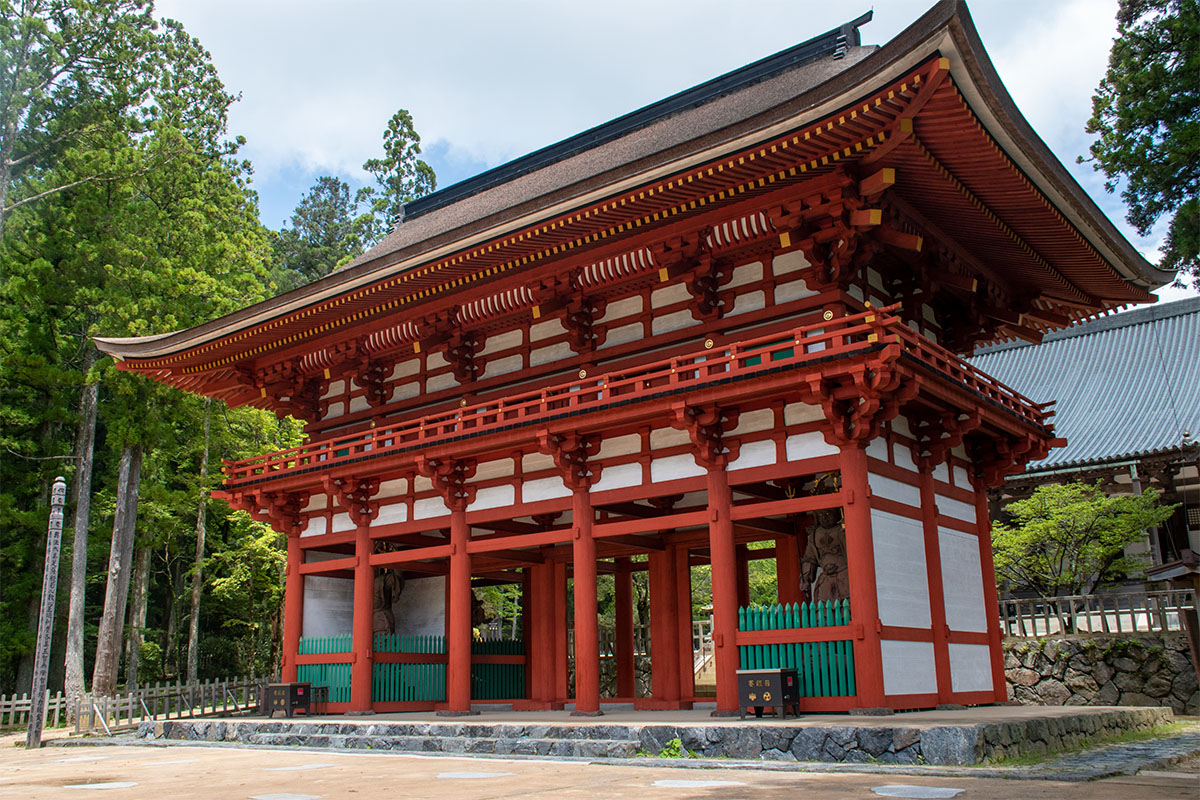
These statues are of the Shitennō, or Four Heavenly Kings, who guard each of the cardinal directions. The pair on the front side of the Chūmon date from the year 1819, having been rescued from the fire of 1843.
The statue on the front-left of the gate is Jikokuten (Skrt: Dhṛtarāṭra, "He who Upholds the Kingdom"), recognizable by the sword which he holds across his chest.
The statue on the front-right is Tamonten (Skrt: Vaiśravaṇa, "The Knowing One"), recognizable by the small pagoda in his hand. When worshipped individually, he is known as Bishamonten.
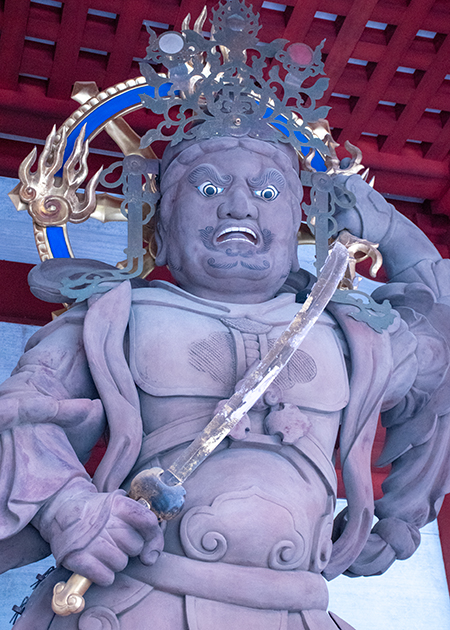
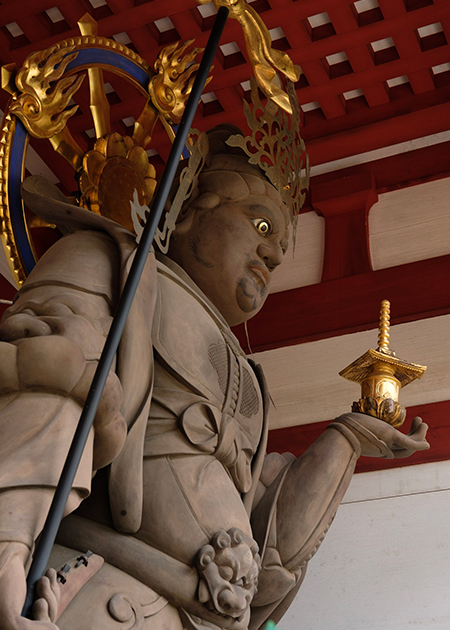
The newer statues on the side facing the Garan were completed in 2015. They are the work of Matsumoto Myōkei, a sculptor of Buddhist statues belonging to the same school as the unknown artist who carved the other, older two.
If you look closely, you will see that the sculptor has depicted a cicada and a dragonfly, respectively, on the breastplate of each. The cicada is characterized by its loud voice, which spreads out in all directions, and the dragonfly by its ability to fly forward only. Each may be seen as a symbol for the strength and resolution of the deity who bears it.
The statue on the back-left is Kōmokuten (Skrt: Virūḍhaka, "He Who Sees All"). He is recognizable by his scroll and brush. Here, he bears a cicada on his breastplate.
The statue on the back-right right is Zōchōten (Skrt: Virūpakṣa, "He who Enlarges"), recognizable by his commanding pose. Here, he bears a dragonfly on his breastplate.
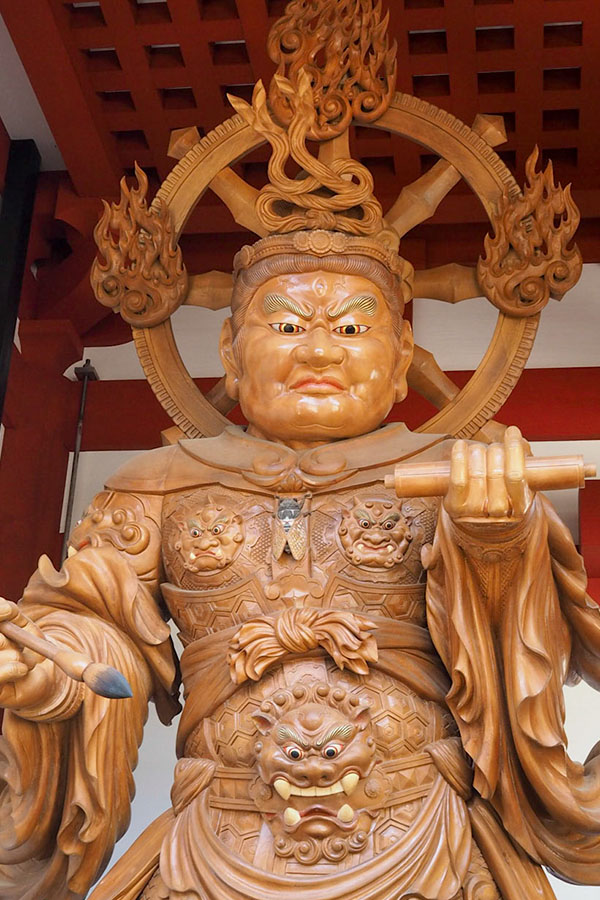
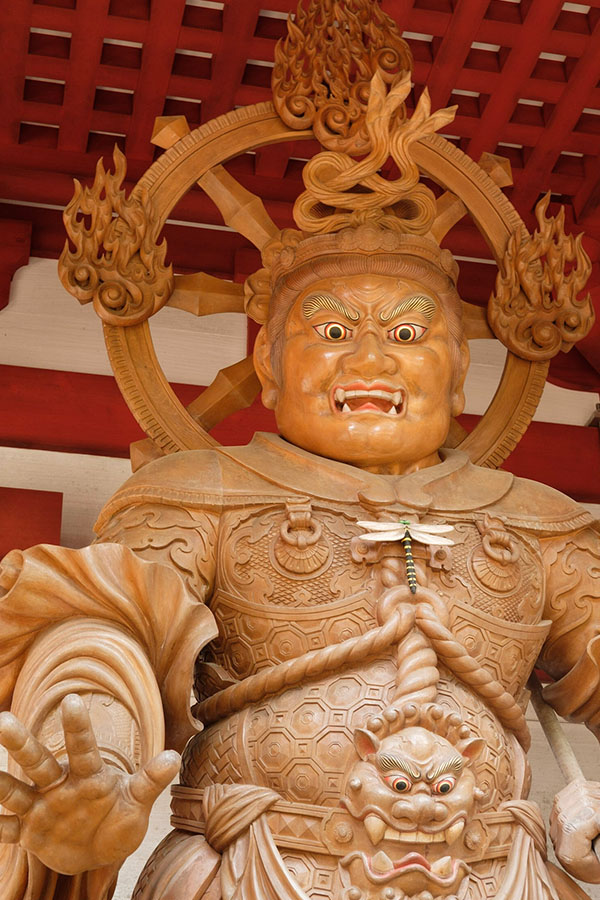
Lorem ipsum dolor sit amet, consectetur adipisicing elit, sed do eiusmod tempor incididunt ut labore et dolore magna aliqua. Ut enim ad minim veniam, quis nostrud exercitation ullamco laboris nisi ut aliquip ex ea commodo consequat. Duis aute irure dolor in reprehenderit in voluptate velit esse cillum dolore eu fugiat nulla pariatur. Excepteur sint occaecat cupidatat non proident, sunt in culpa qui officia deserunt mollit anim id est laborum.
Lorem ipsum dolor sit amet, consectetur adipisicing elit, sed do eiusmod tempor incididunt ut labore et dolore magna aliqua. Ut enim ad minim veniam, quis nostrud exercitation ullamco laboris nisi ut aliquip ex ea commodo consequat. Duis aute irure dolor in reprehenderit in voluptate velit esse cillum dolore eu fugiat nulla pariatur. Excepteur sint occaecat cupidatat non proident, sunt in culpa qui officia deserunt mollit anim id est laborum.
Lorem ipsum dolor sit amet, consectetur adipisicing elit, sed do eiusmod tempor incididunt ut labore et dolore magna aliqua. Ut enim ad minim veniam, quis nostrud exercitation ullamco laboris nisi ut aliquip ex ea commodo consequat. Duis aute irure dolor in reprehenderit in voluptate velit esse cillum dolore eu fugiat nulla pariatur. Excepteur sint occaecat cupidatat non proident, sunt in culpa qui officia deserunt mollit anim id est laborum.
Lorem ipsum dolor sit amet, consectetur adipisicing elit, sed do eiusmod tempor incididunt ut labore et dolore magna aliqua. Ut enim ad minim veniam, quis nostrud exercitation ullamco laboris nisi ut aliquip ex ea commodo consequat. Duis aute irure dolor in reprehenderit in voluptate velit esse cillum dolore eu fugiat nulla pariatur. Excepteur sint occaecat cupidatat non proident, sunt in culpa qui officia deserunt mollit anim id est laborum.
© 2025, k. collins